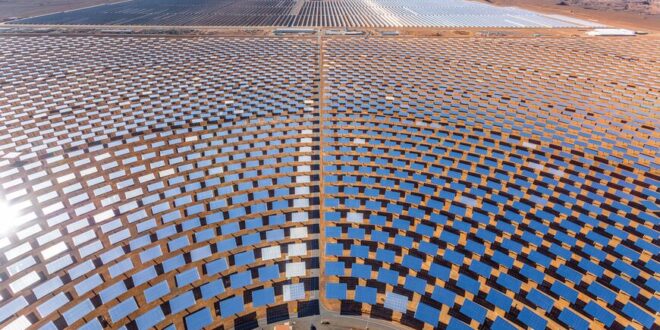Other North African countries are also interested in connecting grids with Europe.
Tunisia’s project to join its power grid to the much larger European electricity network through a 600-megawatt undersea cable to Italy is part of a broader effort by North African countries to connect their energy grids with the continent, the World Bank has told Al-Monitor.
The Tunisia-Italy interconnector (ELMED) project’s total cost is around €960 million ($1..06 billion). The European Investment Bank, the European Bank for Reconstruction and Development, and German state-owned bank KfW will finance the other part of the Tunisia segment while the transmission company Italian Terna will finance the cost of Italy’s part of the project. The European Union is also providing grant funding of €308 million equally between the Tunisia and Italian segments of the ELMED project.
The project will support the Tunisian government’s target of increasing renewable energy in its energy mix from 3% to 35% by 2030.
On June 21, the World Bank announced it would pump $268.4 million into the project. The funding will help fund the building of the main converter station and associated sub-stations on the Tunisian side, as well as support for the implementation of the interconnector, according to the World Bank. The international financing institution will also provide technical assistance to help establish a renewable energy Center of Excellence to position Tunisia as a training hub for renewable energy projects in North Africa.
In an interview with Al-Monitor, Energy Practice Manager for the Middle East and North Africa Region at the World Bank Husam Beides said that it will help Tunisia realize its ambition to become a regional energy hub.
Beides said the cable will be completed in 2028 and will be “an enabler for renewable energy development in Tunisia, and also for Morocco, which is connected with Europe through Spain.”
“And this project will close the loop through Tunisia and will also enable the development of a regional electricity market, where not only Tunisia can contribute to it, but also trade could include Algeria,” he added.
While the project is just the first phase, Beides hopes it will expand in the future and generate follow-up initiatives in renewable energy development across the region.
He said other countries in North Africa are interested in connecting grids with Europe.
“For example, Egypt is considering a new project to connect with Greece. Morocco is considering a third connection with Spain and new interconnections with Portugal and the UK,” Beides said, adding that there was a wider ambition of North African countries to become a regional hub for green energy trade with Europe. It is an important agenda for Europe, too, as it allows the continent to diversify its energy sources after key producer Russia was sanctioned by the West for its invasion of Ukraine in February 2022, pushing up prices and causing an energy crisis on the continent.
The World Bank executive said that Tunisia is developing solar and wind projects for which they are currently tendering.
“Tunisia is also interested in green hydrogen, and right now we have an assessment with the Tunisia Ministry of Energy on the economic and social impact of green hydrogen development in Tunisia,” Beides said, adding that the Maghreb country was well-placed because of its ample renewable resources and proximity to Europe. There are also existing gas pipelines between Tunisia and Europe that could be utilized for green hydrogen transportation.
“This is a [MENA] region that has a very fast-growing youth population, and the development of renewable clean energy and hydrogen will create jobs. We just finished regional studies on the potential of job creation in MENA countries and how each country can meet its renewable [energy] and energy efficiency targets,” he said.
“For example, if Morocco meets its clean energy and renewable targets, the country can create about 28,000 net jobs each year until 2050. Egypt can create around 70,000 net jobs each year until 2050. So that’s why energy transition and clean energy development are very important for the region.”
 Eurasia Press & News
Eurasia Press & News




